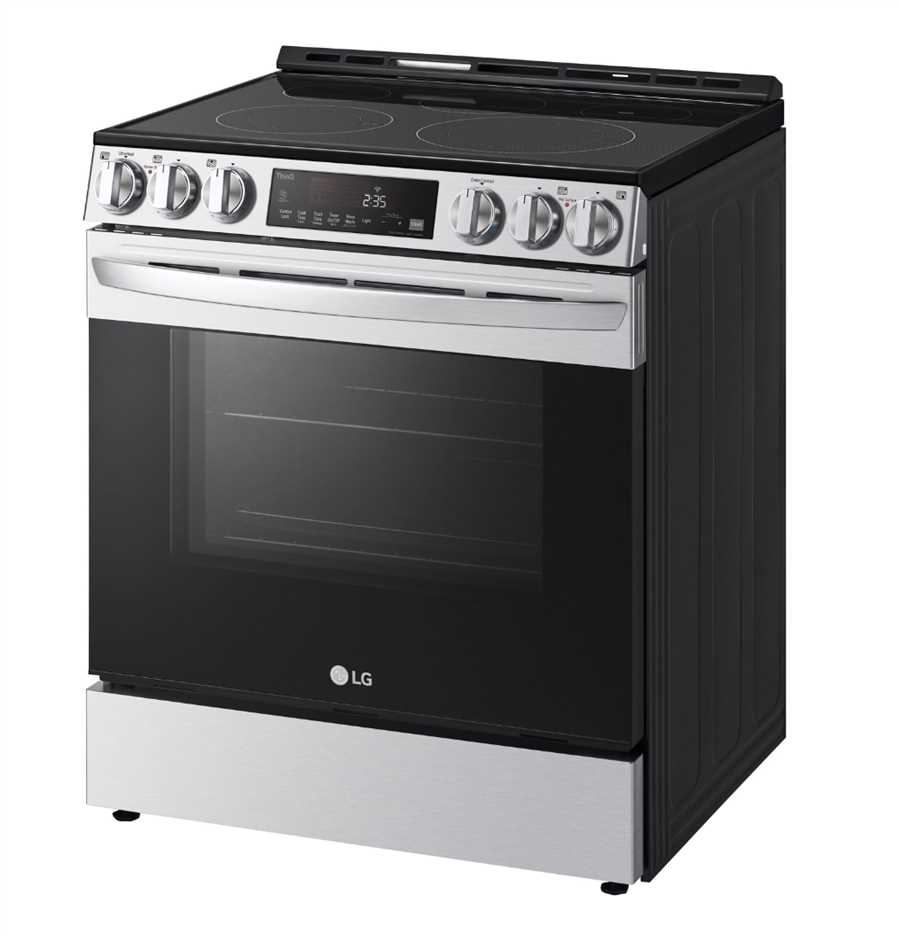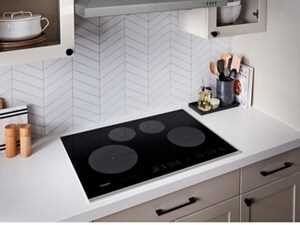One of the age-old debates in the kitchen is whether a gas stove is faster than an electric stove when it comes to cooking. Many chefs and home cooks have their own opinions on this matter, but is there any scientific evidence to support one side over the other?
One of the key factors in determining cooking speed is the heat source. Gas stoves use an open flame, while electric stoves use heating elements. The direct heat from the flame on a gas stove can often lead to faster cooking times compared to the indirect heat produced by electric stoves. This is because the flame can quickly heat up the cookware and transfer heat efficiently to the food.
However, it’s important to note that the size and efficiency of the burner or element also play a significant role in cooking speed. Gas stoves often offer a wider range of heat outputs, allowing for more precise control over the cooking process. Electric stoves, on the other hand, may take longer to reach the desired temperature due to their slower heating process.
Ultimately, the cooking speed of a gas stove versus an electric stove can vary depending on several factors, including the heat source, burner or element size, and the type of cookware being used. It’s important to consider these factors when comparing cooking times between the two types of stoves.
Gas vs Electric Stoves: Which is Faster in Cooking?
When it comes to cooking speed, many people wonder whether gas stoves or electric stoves are faster. Let’s take a closer look at the two types of stoves to determine which one cooks faster.
Gas Stoves:

Gas stoves have been a popular choice among chefs and home cooks for decades. One of the main advantages of a gas stove is its ability to provide instant heat. When you turn the burner on, the flame ignites immediately, allowing you to start cooking right away. This fast heat-up time translates into faster cooking. Additionally, gas stoves provide a more precise control over the cooking temperature, allowing for better heat distribution and faster cooking times.
Electric Stoves:
Electric stoves, on the other hand, take a bit longer to heat up compared to gas stoves. This is because electric stoves rely on heating elements that need time to warm up. Once the elements are heated, they transfer the heat to the cookware, ensuring even cooking. While electric stoves may take slightly longer to heat up, they can still cook food quickly and efficiently.
It’s worth mentioning that the type of cookware you use can also affect the cooking speed. For example, a flat-bottomed pan conducts heat better and allows for faster cooking. Additionally, the size and thickness of the cookware can influence the cooking time.
Conclusion:
In conclusion, gas stoves are generally faster in cooking due to their instant heat and precise temperature control. However, electric stoves can still cook food quickly, especially when using the right cookware. The final decision between gas and electric stoves ultimately depends on your personal preference and cooking needs.
Cooking Speed: Gas vs Electric
One of the key considerations when choosing a stove for your kitchen is cooking speed. Gas and electric stoves differ in the way they generate heat, leading to variations in cooking times.
Gas Stoves
Gas stoves are known for their quick heat-up times. They use an open flame, allowing heat to be instantly generated and transferred directly to the cookware. This instant heat makes gas stoves ideal for high-temperature cooking methods, such as searing or boiling. The ability to quickly adjust the flame also gives cooks more precise control over the cooking process.
Electric Stoves
Electric stoves, on the other hand, take longer to heat up compared to gas stoves. They use electric coils or heating elements to generate heat, which requires time to reach the desired cooking temperature. Electric stoves typically have a slower heat-up time and may take several minutes to heat up evenly.
However, it is worth noting that certain electric stove models have been designed to provide a faster cooking experience. These models incorporate advanced technologies like induction cooking, which uses electromagnetic fields to heat the cooking vessel directly. Induction cooktops are known to heat up quickly and provide faster cooking times compared to traditional electric stoves.
In conclusion
When it comes to cooking speed, gas stoves generally have the advantage over electric stoves. Gas stoves offer instant heat and precise control, making them a preferred choice for many professional chefs and home cooks. Nevertheless, with the advancements in electric stove technology, certain models can offer comparable cooking speeds through features like induction cooking.
Heat Source: Gas vs Electric
When it comes to cooking, the heat source plays a crucial role in determining how quickly and efficiently you can prepare your meals. Two popular options for heat sources are gas stoves and electric stoves. Let’s explore the differences between these two options and see which one cooks faster.
Gas Stoves
Gas stoves have been a traditional choice for many cooks due to their responsive heat control. With a gas stove, the heat is directly produced by a flame, which allows for quick and precise adjustments. When you turn the burner on, the flame is instantly available at the desired temperature. This quick heat-up time can significantly reduce cooking time, especially when it comes to boiling water or searing meat.
Another advantage of gas stoves is their ability to distribute heat evenly. The flame covers the entire bottom of the cookware, ensuring that the heat is evenly spread. This even heat distribution can lead to more consistent cooking results, preventing hot spots or unevenly cooked food.
Electric Stoves
Electric stoves, on the other hand, use electric coils or smooth-top surfaces to generate heat. Unlike gas stoves, electric stoves take some time to heat up. The coils or heating elements need to warm up gradually, causing a delay in the cooking process. While some modern electric stoves have improved heat-up time, gas stoves still generally outperform them in terms of speed.
Despite the initial slower heat-up time, electric stoves provide more consistent heat once they reach the desired temperature. The electric coils or heating elements distribute heat evenly across the entire cooking surface, resulting in thorough and uniform cooking. This consistent heat can be advantageous for dishes that require slow and low cooking or for baking recipes that need precise temperature control.
Conclusion
In terms of cooking speed, gas stoves have the upper hand due to their instant heat availability. If you’re looking for quick heat-up times and responsive control, gas stoves are the way to go. However, electric stoves offer consistent heat distribution once they warm up, making them ideal for certain cooking techniques and recipes. Ultimately, the choice between gas and electric stoves will depend on your cooking preferences and needs.
Efficiency: Gas vs Electric

The efficiency of a stove refers to how effectively it converts energy into heat for cooking. When comparing gas stoves to electric ones, several factors come into play.
Gas Stoves:
Gas stoves are known for their efficiency in cooking. They provide instant heat and precise control over the temperature, allowing for quicker cooking times. Gas stoves distribute heat evenly across the cooking surface, which ensures that food cooks more uniformly. Additionally, gas stoves can reach higher temperatures compared to electric stoves, making them ideal for certain cooking techniques like stir-frying or searing.
Electric Stoves:
Electric stoves, on the other hand, have made significant advancements in recent years and have become more efficient. However, they still tend to be slightly less efficient than gas stoves. Electric stoves take longer to heat up, which can result in longer cooking times. They also tend to have less precise temperature control, making it more challenging to maintain the desired temperature for certain dishes.
One advantage of electric stoves is that they can be more energy-efficient in certain situations. For example, if you have a modern induction stove, it uses electromagnetic fields to directly heat the cookware, which can be more efficient than traditional electric stoves.
In conclusion, gas stoves generally offer better efficiency in terms of speed and temperature control. However, electric stoves have their own advantages and are continuously improving in terms of energy efficiency.
Control and Responsiveness: Gas vs Electric
When it comes to cooking, control and responsiveness are essential factors to consider. Gas stoves and electric stoves differ in their ability to provide precise temperature control and their responsiveness to adjustments.
Gas Stoves:
Gas stoves use an open flame created by burning natural gas or propane. The heat is evenly distributed across the bottom of the cookware, allowing for quick and even cooking. Gas stoves offer instant heat when turned on and respond quickly to adjustments in temperature. This responsiveness allows for immediate changes in cooking intensity, making it easier to simmer or sear foods precisely.
One advantage of gas stoves is the ability to visually see the flame, which can be useful for determining the heat intensity. The flame can provide immediate feedback, allowing cooks to make adjustments in real-time.
Electric Stoves:
Electric stoves, on the other hand, use electric elements that heat up when an electric current passes through them. The heat is then transferred to the cookware placed on top. Electric stoves typically have a flat cooking surface that heats up evenly.
Compared to gas stoves, electric stoves have a slower response time when adjusting the temperature. This is because the heating elements take time to heat up or cool down. It may require some trial and error to achieve the desired cooking temperature.
The Importance of Control and Responsiveness:
Control and responsiveness are crucial aspects of cooking. Precise control over temperature allows for delicate tasks like melting chocolate or simmering delicate sauces. Quick responsiveness to adjustments helps prevent overcooking or undercooking.
Gas stoves provide the advantage of immediate and precise control over cooking temperatures. The ability to visually see the flame also aids in maintaining the desired temperature. Electric stoves, while offering even heat distribution, may require more attention and experimentation to achieve the desired results.
In conclusion, when it comes to control and responsiveness, gas stoves have the upper hand. Their ability to provide instant heat and quick response to adjustments allows for more precise cooking. However, it’s important to consider personal cooking preferences and needs when choosing between a gas or electric stove.
Questions and answers
Do gas stoves cook faster than electric?
Yes, gas stoves can cook faster than electric stoves. Gas stoves provide instant heat and can reach high temperatures quickly, allowing for faster cooking times.
Why do gas stoves cook faster than electric?
Gas stoves cook faster than electric stoves because gas burners heat up quickly and provide instant heat. Electric stoves, on the other hand, take some time to heat up and cool down, resulting in longer cooking times.
Are gas stoves more efficient than electric stoves?
Gas stoves are generally considered more efficient than electric stoves. Gas burners heat cookware directly, while electric stoves transfer heat through a coil, which can result in some energy loss. However, the efficiency can also depend on the specific model and usage.
Can electric stoves be as fast as gas stoves?
Electric stoves can be fast, but they typically take longer to heat up and cool down compared to gas stoves. However, some newer electric stoves have features like induction cooking, which can provide faster cooking times by quickly transferring heat to cookware.
What are the advantages of using a gas stove over an electric stove?
There are several advantages to using a gas stove over an electric stove. Gas stoves offer instant heat, precise temperature control, and can be cheaper to operate. Additionally, gas stoves provide a visual flame, which can be useful for determining the intensity of the heat.






